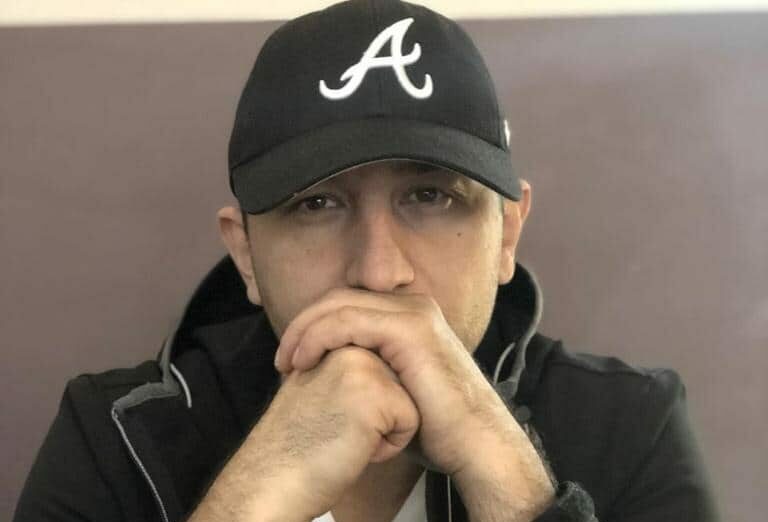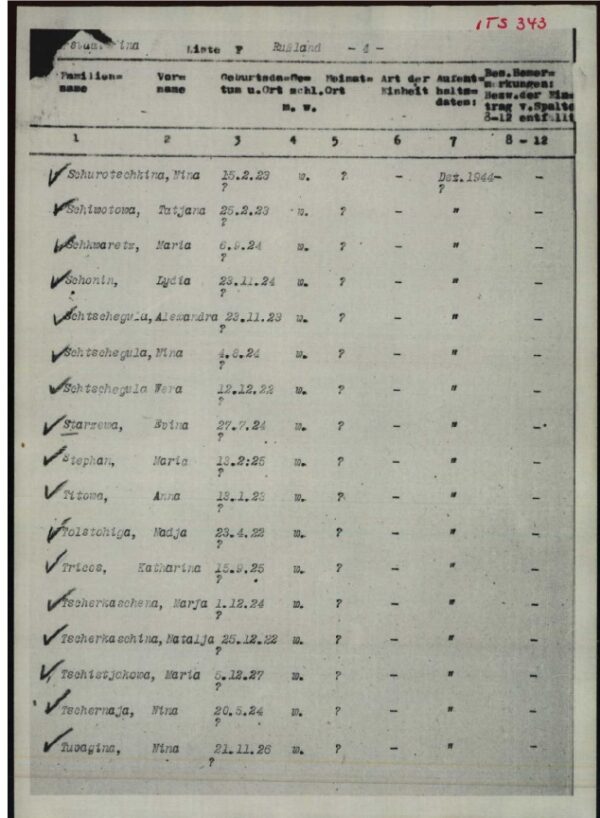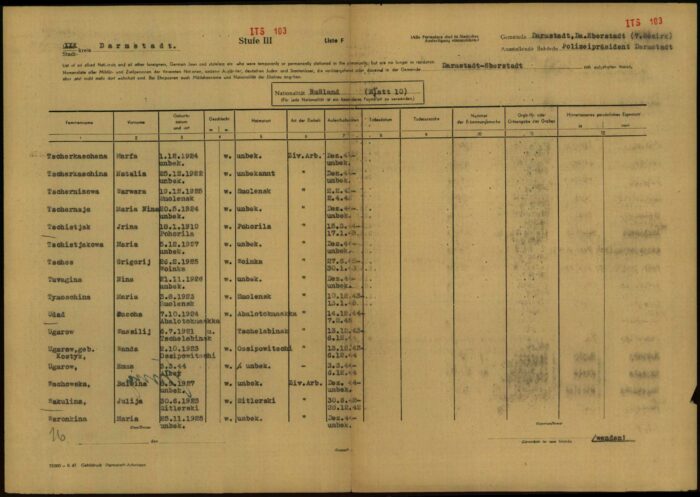Ukrainian refugees in Germany: Helping to heal emotional wounds

Millions of Ukrainians have fled their country since the start of Russia’s war of aggression. Andrii Aloshin from Luhansk is one of them. The pastor now provides pastoral care at a school in Bavaria for children who have fled Ukraine. He found some documents about his grandmother Natalia Tscherkaschina in the Arolsen Archives. She had to do forced labor in Darmstadt-Eberstadt for four years during World War II.
Andrii Aloshin has been in Germany since mid-March. He comes from the eastern Ukrainian region Luhansk. Then in March, the Russian war of aggression on Ukraine forced him to flee. Initially he found refuge with a family in Augsburg, who took him in for a month. Now he lives in Türkheim, Bavaria, and he has big plans for the future. He wants to start up a center for people who are struggling with addiction and help them cope with everyday life. He has been clean for 14 years himself and is now seeking support for his project.
»I don’t want the kids to develop feelings of hatred that they would then carry with them for the rest of their lives. It’s important that their emotional wounds start to heal now.«
Andrii Aloshin, Ukrainian pastor
He also implements prevention strategies to ensure these children with experiences of war and flight do not develop an addiction themselves in later life. Andrii knows what he’s talking about, because he himself grew up hating the Germans. He was exposed to anti-German propaganda as a child in the aftermath of the crimes committed by the Nazis. Having to flee to this country now and ask for help – that was a shock for Andrii. “I now see what Germans are like today: hardworking, compassionate, helpful, and grateful. Finding the documents about my grandmother stored at the Arolsen Archives was very important for me. Now I have a better understanding of what the Germans were like in the Nazi era and what they are like today – in fact I now have a better understanding of the whole story.”
Hatred for Germany
The four years his grandmother spent as a forced laborer in the German Reich were very much a taboo subject in Andrii’s family. “This generation has carried its hatred with it, but the fact that I and many other Ukrainians are now receiving help and being met with understanding in Germany helps the healing process.”


Foreigner tracing campaign
The lists mentioning Andrii’s grandmother were created after the end of the Second World War in the context of the foreigner tracing campaign. The Allies ordered German authorities, companies, hospitals, social insurance funds, and other bodies in all four occupation zones to draw up lists and hand over documents. These lists contained information on persons who did not hold German citizenship and who had been living in the district or area that these bodies were responsible for from 1939 onwards, had died there, or were still living there.
Andrii has been able to provide financial assistance to a cousin who is still in Ukraine through the Aid Network for Survivors of Nazi Persecution in Ukraine. Now he is looking for more supporters to help him realize his dream and set up a housing project for addicts in Germany.
If you would like to help, you can contact Andrii Aloshin directly by e-mail.

